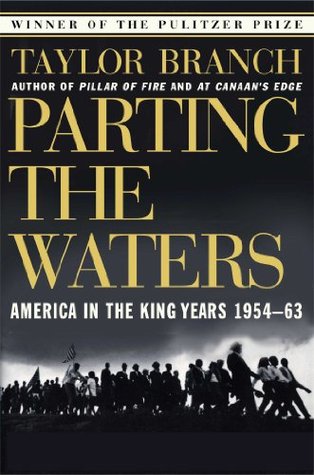More on this book
Community
Kindle Notes & Highlights
King’s life is the best and most important metaphor for American history in the watershed postwar years.
Religious oratory became the only safe marketable skill, and a reputation for oratory substituted for diplomas and all other credentials.
It was against the law in Montgomery for a white person and a Negro to play checkers on public property, nor could they ride together in a taxi.
Negroes could not walk through the white section of the bus to their own seats, but were instead required to pay their fares at the front and then leave the bus to enter through the rear door. Some drivers were spiteful enough to drive away before the riders could reboard.
Rauschenbusch rescued religion from sterile otherworldliness by defining social justice as the closest possible human approximation of God’s love.
Niebuhr ridiculed Dewey’s notion that ignorance was the principal cause of injustice, stating instead that it was “our predatory self-interest.” There was no evidence, said Niebuhr, that human beings became less selfish or less predatory as they became better educated. War, cruelty, and injustice survived because people were by nature sinful.
never do anything contrary to the law of love.”
Every morning he was up by five-thirty to work for three hours
Her character represented one of the isolated high blips on the graph of human nature, offsetting a dozen or so sociopaths.
He was twenty-six, and had not quite twelve years and four months to live.
the moment awakened and confirmed his belief that the essence of religion was not a grand metaphysical idea but something personal, grounded in experience—something that opened up mysteriously beyond the predicaments of human beings in their frailest and noblest moments.
the very existence of large masses of Negro college students came as a revelation.
“the shortest route to heaven is from Atlanta, Georgia.”
For a brief period, nearly all the elements of Negro society in Atlanta—hotheaded youth, academics, even the Republican stalwarts such as John Wesley Dobbs—were united in protest.
SNCC convened a three-day meeting at the Butler Street YMCA in Atlanta two days after the jail-in began.
Ella Baker.
Ruby Doris Smith
Lewis smiled warmly at Campbell, as though taking pity on him. “Okay, I’m a sinner,” he replied softly. “We’re gonna march.”
Negroes had poured generations of rigid training and lifetimes of effort into slavish imitations of white refinements.
Moses was a mystical purist. He valued SNCC for the succor it provided to like-minded people, but he remained aloof from the more pragmatic functions of an organization, such as fund-raising, discipline, and publicity. His experience in Mississippi had left him more suspicious of command, more preoccupied with moral leadership by example.
By the peculiar logic of racial politics, King raised a cry about restaurant courtesies while accepting death threats quietly as a hazard of his work.
oratory. This was King’s ironic trap up close: he could bring inspiration even to the National Press Club, but he could force his movement into the news columns only by bloodshed or political miracle.
let’s get our marchin’ shoes ready,” King told them.
with the post office, the phone company, and all other public facilities in hostile hands, logistical frustrations reached humorous extremes. Sending a message was an art; getting a ride was an ordeal; finding a meeting place was a saga.
Mississippi authorities attacked the registration project more actively by shutting off distribution of federal food surpluses in two Delta counties.
supplies. A smattering of American Indians among the Negroes bore witness to the Delta’s lingering Indian heritage. (LeFlore County and its principal town, Greenwood, were named for the last high chief of the Choctaw nation, Greenwood LeFlore.)
King’s patience “infuriates me.”
Entrenched Southerners were revolting against him in Congress.
it’s your moment of greatest heights that could also be the beginning of your undoing.”
Often they accepted King more easily than he accepted himself.
“If you want to organize anything,” he kept saying, “assume that everybody is absolutely stupid. And assume yourself that you’re stupid.”
By guilt or aversion, many of the most sympathetic whites retained a subliminal belief pairing Negroes with violence, such that even innocent beating victims were implicated to some degree in their fate.
Kennedy, unable to deliver the votes of his own party, was pleading for bipartisan support while stripping out the few amendments for which Republicans could claim credit. The legislative tangle was a cartoonist’s cloud of flying fists.


